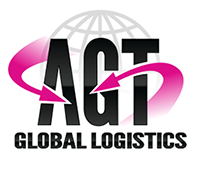Planning for Success with Nuclear Power
Investing in Expert Logistical Planning and Execution Results in Safe, Reliable, Cost-effective, Nuclear Energy Generation

For all its merits, the nuclear power industry has been trapped in a vicious circle for some time. Here’s how it works: competition from cheap sources of natural gas (fracking) leads to nuclear power companies instituting cost-cutting measures in an effort to remain profitable. Those cuts can include cutting back allocations for preparedness, which can then invariably result in dramatic cost-overruns when foreseeable, preventable problems erupt that swamp budgets that are already stretched to the breaking point. In the bargain, public perception of the safety and reliability of the entire industry takes another hit, exerting even more pressure on the industry as a whole.
As withering as this state of affairs is, it only represents the day-to-day downward trajectory for nuclear energy; lack of logistical planning also opens up the possibility of the occurrence of much more dramatic, far more-costly events, such as the The Fukushima Daiichi nuclear disaster.
In February of 2011, the massive Tōhoku earthquake triggered a deadly tsunami that rocked Japan’s Fukushima Daiichi nuclear power plant, permanently damaging several reactors, and leading to the decommissioning of the entire plant. Tellingly, however, the underlying cause of the plant failure was found to be not this historic natural disaster, but a lack of planning on the part of the Tokyo Electric Power Company (TEPCO). After an exhaustive investigation into the disaster, the Fukushima Nuclear Accident Independent Investigation Commission (NAIIC) determined that the causes of the accident had been foreseeable, and that TEPCO had failed to plan and perform required risk assessments that would have prevented the plant’s failure. The total cost associated with this disaster have been estimated as high as 250 billion dollars. And all of it could have been avoided had TEPCO simply dedicated the resources required to create a comprehensive logistical plan and faithfully executed it. Put more simply, nuclear energy didn’t fail us; we failed nuclear energy.
But we can do better.
For those of us who understand the benefits of nuclear power and are committed to its success, it is crucial that we take the steps necessary to operate efficiently and safely.
Any company in any industry will stumble if they are inefficient. In a competitive landscape, nuclear power companies must constantly and aggressively seek new levels of efficiency. The best way to identify those refinements is through comprehensive logistical planning. Reliable logistics is integral for an effective supply chain. Late delivery of key materials, employees idled by delays, unexpected losses suffered when materials are in transport as a result of improper packaging – all of these factors and more can contribute to huge overruns that can make the difference in whether a company succeeds or fails.

The path to a safe, reliable, cost-effective – and profitable – future for the nuclear power industry is not a complicated one. It does, however, require a strict dedication to the most rigorous standards of logistical planning, and an unwavering commitment to faithfully executing those plans.
Ready to make your 2017 outage unstoppable? Let’s talk.
AGT Global Logistics Founder and CEO Angela Eliacostas: Unstoppable Force
When she joined trucking company Freight Flow as a part-time billing clerk in the early 1990s, Angela Eliacostas was looking to augment her income as a young, single mother with four children. Then she rose through the ranks, eventually becoming general manager. In 2005, she launched a firm of her own.
Eliacostas formed All Girls Transportation and Logistics with a focus on the nuclear power industry. It soon expanded to serve other kinds of energy companies, and then other industries as well. Starting with revenues of $18,000 in 2006, the company brought in more than $2 million annually by 2008.
It has been growing ever since. Today, the firm is called AGT Global Logistics. Headquartered in Glen Ellyn, Ill., it provides a broad range of third-party logistics (3PL) services. “We’re a one-stop shop, handling everything from small packages to 200,000-lb. transformers,” Eliacostas says.
In a recent interview, Eliacostas provided a look at what it takes to steer an operation that can move just about anything.
See the full article below:


